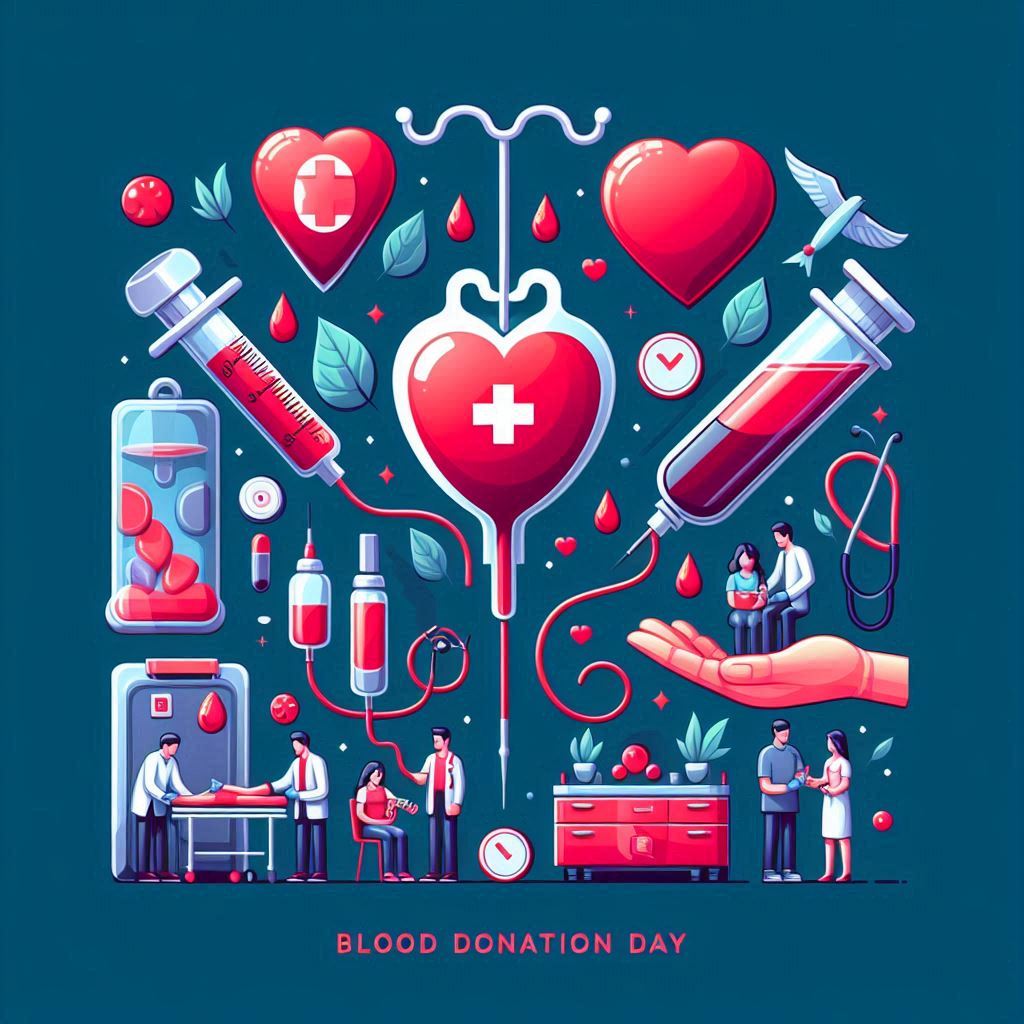Today, on June 14th, we come together to celebrate Blood Donation Day, a special day dedicated to honoring the selfless heroes who donate blood and encouraging more people to join this life-saving mission. Did you know that one blood donation can save up to three lives? This incredible act of kindness has a profound impact, and your contribution could make a world of difference to someone in need.
The Importance of Blood Donation
Blood is essential for human life, carrying vital oxygen and nutrients to our organs and tissues. However, many individuals across the globe find themselves in desperate need of blood due to accidents, surgeries, medical conditions, or complications during childbirth. For these individuals, a blood transfusion can mean the difference between life and death.
Despite the critical need for blood, there is often a shortage. Blood cannot be manufactured; it can only come from generous donors. This is why regular donations are so crucial. Every donation helps maintain a stable blood supply, ensuring that hospitals and medical centers are prepared for emergencies and routine treatments.
The Lifesaving Impact
When you donate blood, you are not just giving a part of yourself; you are giving someone else a chance at life. Here are some ways your blood donation can be used:
- Trauma Victims: Individuals who have experienced severe accidents or injuries often require significant amounts of blood to survive.
- Surgery Patients: Major surgeries, such as organ transplants and heart surgeries, frequently necessitate blood transfusions.
- Cancer Patients: Chemotherapy and radiation treatments can deplete blood cells, making transfusions essential for recovery.
- Chronic Conditions: Patients with chronic anemia, sickle cell disease, or other blood disorders rely on regular transfusions to manage their conditions.
How One Donation Saves Three Lives
A single donation can be separated into different components – red blood cells, plasma, and platelets – each of which can be used to treat different patients. Red blood cells are crucial for carrying oxygen, plasma is used for clotting and other vital functions, and platelets are essential for blood clotting. By dividing one donation into these components, three different patients can benefit from a single donor's generosity.
Becoming a Blood Donor
Becoming a blood donor is a straightforward and rewarding process. Here’s how you can get started:
- Find a Local Blood Drive: Use online resources, local hospitals, or community centers to locate a blood drive near you.
- Meet the Eligibility Requirements: Generally, you must be in good health, weigh at least 110 pounds, and be at least 16 or 17 years old (depending on the regulations in your area).
- Prepare for Your Donation: Ensure you are well-hydrated and have eaten a healthy meal before donating. Avoid heavy exercise and get a good night's sleep.
- The Donation Process: The actual donation takes about 10-15 minutes, although the entire process, including registration and post-donation refreshments, typically takes around an hour.
- Aftercare: Relax and enjoy some snacks and refreshments after your donation. Avoid strenuous activities for the rest of the day.
Join the Life-Saving Mission
Today, as we celebrate Blood Donation Day, let's honor the heroes who regularly donate blood and inspire more people to join this vital cause. Your donation can save lives, offer hope, and support families during their most challenging times. Every drop counts, and every donor makes a difference.
Find a local blood drive and donate today! Together, we can ensure that blood supplies are always available for those in need. Your small act of kindness could be the lifeline someone is desperately waiting for. ❤💉
Happy Blood Donation Day!
